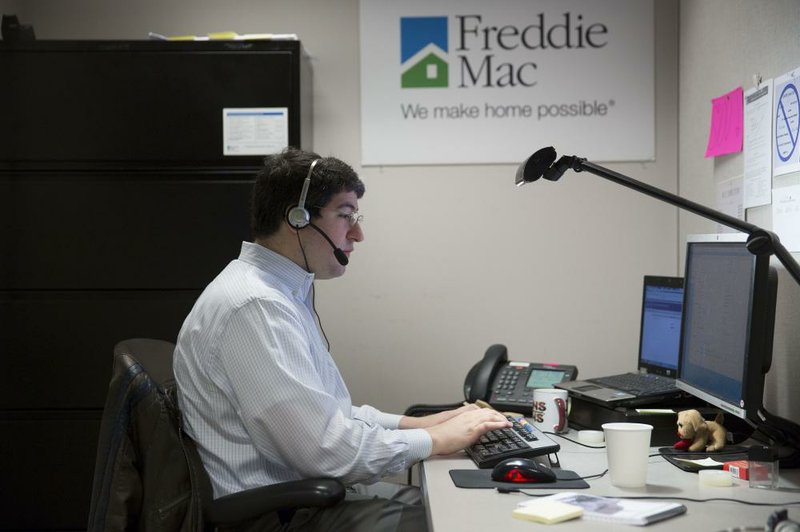WASHINGTON -- Government-controlled mortgage companies Fannie Mae and Freddie Mac posted profits for the April-June period as the U.S. housing market continued to recover. Gains in recent years have enabled them to fully repay their government aid after being rescued during the financial crisis in 2008.
Fannie Mae and Freddie Mac own or guarantee about half of all U.S. mortgages, worth about $5 trillion. Along with other federal agencies, they back roughly 90 percent of new mortgages.
Fannie Mae, the Federal National Mortgage Association, reported Thursday that it earned $3.7 billion in the second quarter. Washington-based Fannie will pay a dividend of $3.7 billion to the U.S. Treasury next month. With its previous payments totaling $126.7 billion, Fannie Mae has more than fully repaid the $116 billion it received from taxpayers.
Freddie Mac, the Federal Home Loan Mortgage Corp., posted net income of $1.4 billion for the latest quarter. Freddie Mac, based in McLean, Va., will pay a dividend of $1.9 billion to the government. Freddie Mac will have paid $88.2 billion in dividends, exceeding its full government bailout of $71.3 billion.
Freddie Mac had fully repaid as of last year's third quarter, and Fannie Mae as of the fourth quarter.
The government rescued the companies at the height of the crisis in September 2008 when both veered toward collapse under the weight of losses on risky mortgages. Together the companies received taxpayer aid totaling $187 billion.
The gradual recovery of the housing market has made them profitable again. Their repayments of the government loans helped make last year's federal budget deficit the smallest in five years.
U.S. home prices have risen steadily since the housing segment began to recover in 2012. But home prices remain about 17 percent below the peaks reached in the summer of 2006, just before the housing market bust.
And while sales of previously owned homes have picked up, new home sales plummeted in June. New home construction has fallen for two straight months. That could lead to fewer construction jobs.
Fannie Mae's $3.7 billion earnings in the second quarter were down 63 percent from $10.1 billion in the same period of 2013. Increases in home prices slowed sharply in the April-June period from a year earlier, reducing Fannie Mae's income, the company said.
Freddie Mac's $1.4 billion net income declined 72 percent from $5 billion in the second quarter of 2013. Freddie Mac noted that its earnings can fluctuate widely because of changes in the value of its holdings of derivatives, investments used to hedge against swings in interest rates. That can create "mismatches" in quarterly earnings that may not reflect the economics of its business, Freddie Mac said.
Freddie Mac also said its level of earnings in recent quarters "is not sustainable over the long term."
Under a federal policy, Fannie Mae and Freddie Mac must turn over their entire net worth above $2.4 billion in each quarter to the Treasury. The two companies said their net worth in the first quarter was $6.1 billion and $4.3 billion, respectively.
The two companies don't directly make loans to borrowers. They buy mortgages from lenders, package them as bonds, guarantee them against default and sell them to investors. That helps make loans available.
President Barack Obama has proposed a broad overhaul of the U.S. mortgage finance system -- including winding down Fannie Mae and Freddie Mac. The goal is to replace them with a system that would put the private sector, not the government, primarily at risk for the loans.
A plan to phase them out, and instead use mainly private insurers to backstop home loans is stalled in Congress. Two key senators reached agreement in March on a plan that was endorsed by the White House. The senators' plan would create a new government insurance fund. Investors would pay fees in exchange for insurance on mortgage securities they buy. The government would become a last-resort loan guarantor.
Business on 08/08/2014
